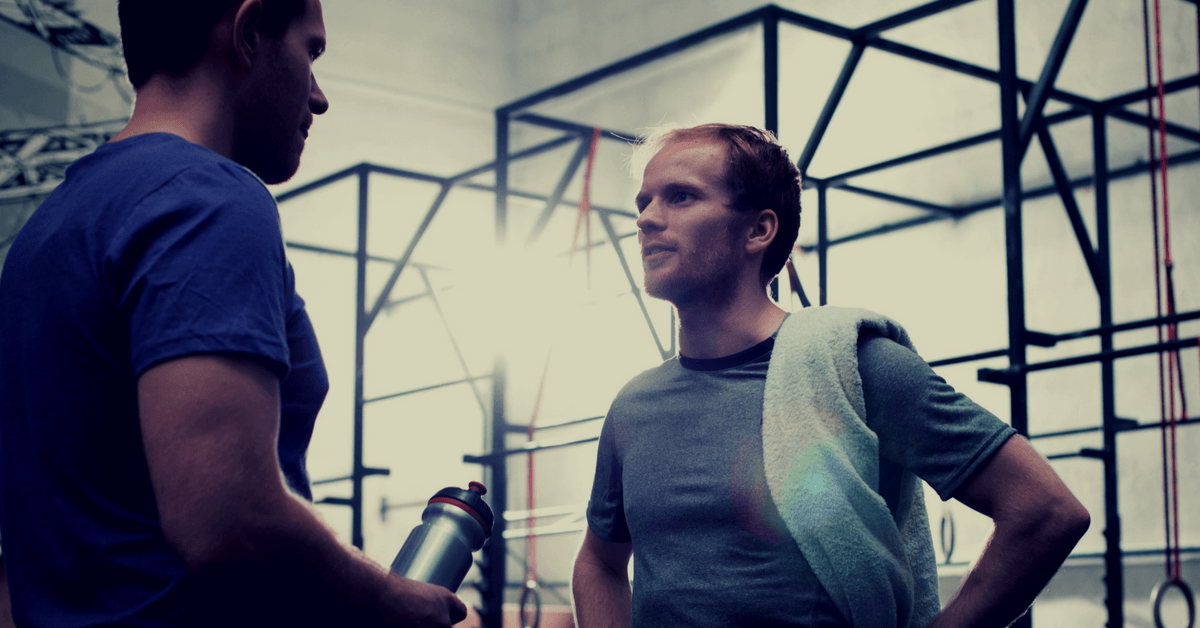While we’re all keen to promote our abilities to help our clients achieve their physical goals, we’d benefit greatly from placing greater value on our professional conduct. What this means is that you need to develop long-term and continuous business relationships, rather than having to fish for leads as soon as each client ends their program.
I’ve been a personal trainer for a little over a year now, but I tell you this from my previous 10+ years of experience as a personal performance coach. I’ve successfully applied my knowledge to build a new client base and continue to make my customers feel valued in a way that has led to regular renewals and referrals. And now I’m going to share how with you.
Don’t expect to be great from the outset.
With each qualification I had gained from different fields, the first thing I realized after having completed my most recent training was that I was at the bottom of a steep learning curve...yet again.
The way to get over this hump is to find other pros and listen to their advice. This could either be by joining their exclusive “inner circles” memberships, buying their books, adding (or following) them on Facebook. It’s always helpful to bounce ideas and problems off your peers who may have more experience than you in the field. You’ll grow and learn more if you are open to suggestions and avoid being a know-it-all straight out of the gate.

But keep in mind that what we study doesn’t always translate well to working with a real person. Much of working with clients depends on trial and error, so don’t be afraid to try something and ask for immediate feedback. If you are trying something new that you’re not sure about, be up front with your clients about it.
...but be great at being professional from the beginning.
Jenny Rogers, one of the UK’s foremost executive and performance coaches, identifies integrity and efficiency as essential components in the delivery of any client-focused service. In her book Developing a Coaching Business, she offers positive and negative indicators for each.
Integrity includes being honest with clients about what to expect from training and turning away people who are not in a position to benefit from what you offer. That means if someone is outside of your scope of practice or knowledge base, don’t be afraid to refer out! This counterintuitive strategy actually helps you gain more referrals.
Efficiency includes returning emails and calls promptly and never cancelling sessions for trivial reasons. Overall, you maintain utmost professionalism, including dressing and looking the part, to attract and retain clients. Even though we trainers are in “athletic gear,” we can still think about standing out. For example, if the rest of your peers are wearing a quick-drying t-shirt, you can wear nice shorts and a collared shirt.
Don’t get so caught up with planning programs that you overlook the basics of customer service. As Rogers points out,
“When you have a reputation for high-quality service, you are far more likely to have a high customer retention rate.”
Learn to listen, but, like, really listen.
Listening is a very underrated skill, but it’s just as important as talking to the client. When you listen, you let the client speak freely without giving any indication that you want to interrupt or interject. Make sounds like Hmm… or I see to let clients know you are listening.
If you let the client talk, you gain a lot of insight into what they want and what is going on with their life. These pieces of information taken together can inform your programming and how you approach your client with each session.

If a client keeps coming back to something going on in their personal life during your conversation, for example, ask if they would like to speak more about it privately with you. Your client might have a problem that could affect their training that day, so encouraging them to confide in you could make them value and trust you more. Otherwise, they may stop following the plan and drift away.
Flexibility and empathy are hallmarks of confident trainers because they value their clients more than simply achieving hard results. Ultimately, a client’s motivation and compliance are often on you.
Your client is the center of your universe.
We know that clients don’t sign up for programs. They sign up for individual trainers.
Clients don’t care about the amount of science you know. They want to work with someone who takes their questions and worries very seriously and makes them feel comfortable, especially when it comes to sharing personal information and motivations. My first client booked me before I finished my course because we had met in a different professional context; she decided I would be the right trainer for her when I was ready to go.
In her article, Jennifer Smith Maguire describes the non-technical skills and values associated with personal training, like building good rapport and offering high-quality customer service, as “emotional labour.”
Essentially, the quality of your frontline service is what sets you apart in a largely indistinguishable market. Results are important, but don’t make the mistake of prioritizing transformation and gains over being reliable and trustworthy, and having your clients’ interests at the heart of your business.
After all, clients make your business.
Other trainers found these articles helpful:
- Selling Personal Training in 5 Steps by Jonathan Goodman
- 4 Ways to Build Long-Lasting Client Relationships by Jim Hamilton
- Influencer Expert Reveals the Best Way to Approach Clients on the Floor by Shari Alexander









